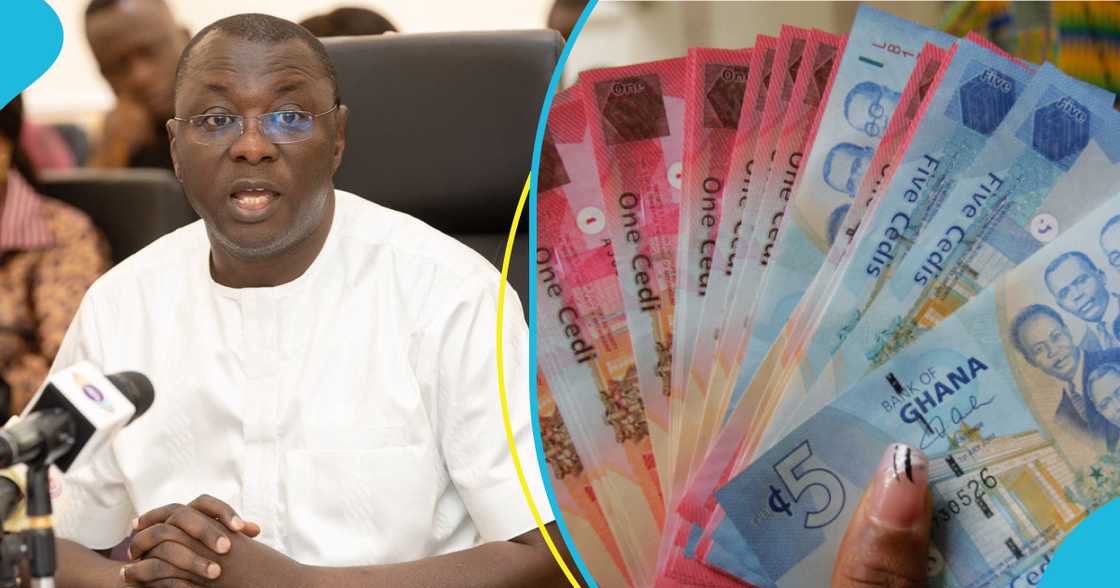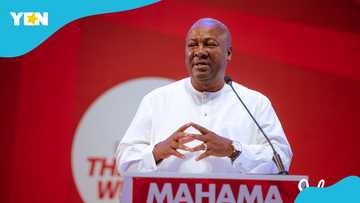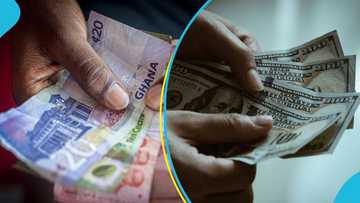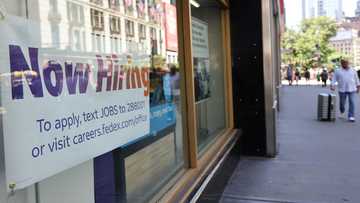Finance Minister: Ghana Predicted To Finish 2024 With 15% Inflation Rate
- Finance Minister Dr Mohammed Amin Adam said Ghana’s inflation rate is likely to reach 15% by the end of 2024
- He said this is largely due to the Akufo-Addo administration working hard despite Ghana's economic challenges
- He said that if given the nod in the 2024 elections, the NPP government would bring inflation down further
Ghana's Finance Minister, Dr Mohammed Amin Adam, has forecasted that the country's inflation rate is likely to reach 15% by the end of 2024.
He made the projection at a town hall meeting in Accra this week, touting efforts to manage inflation by the government amid the economic crisis.

Source: Getty Images
Dr Adam stated that the Akufo-Addo New Patriotic Party (NPP) administration had significantly reduced inflation rates from 2017.
Per Citi Newsroom, he said that when comparing the inflation rate to that of the previous National Democratic Congress administration, the ruling NPP government achieved a single-digit inflation rate in 2018 and 2019, an unprecedented feat.
PAY ATTENTION: All celebrity news in one place! Follow YEN's Facebook Broadcast channel and read on the go.
The Minister of Finance said 24 months of single-digit inflation was a historic achievement in Ghana’s history, something the opposition NDC has never achieved throughout its administration.
Turning to more recent events, he blamed the Russia-Ukraine war and the COVID-19 pandemic for disrupting the country’s economy, causing inflation to spiral to 54 per cent in 2022.
Ghana's finance minister projects lower inflation
Dr Amin Adam stated that despite the massive spike two years ago, Ghana has managed to reduce inflation to near-single-digit levels once again.
He also projected the country would end the year with an inflation rate of just 15%.
The finance minister added that if Ghanaians gave the NPP the nod in the upcoming 2024 elections, he was certain the government could bring inflation down to single digits in 2025.
Ghana's inflation lessened in June to its lowest since March 2022, per Trading Economics, but remains above the target band of between 6% and 10%.
The report indicates that this was influenced mostly by prices of non-food items and the stablising of the cedi.
Traders demand reduction in monetary policy rate
Meanwhile, Executive Secretary for the Importers and Exporters Association of Ghana, Sampson Asaki Awingobit, has called on the Bank of Ghana to work towards reducing the monetary policy rate.
Traders are concerned that the cedi's depreciation is negatively affecting their businesses. The increased policy rate also negatively affected banks' ability to lend money to businesses.
Ghana's central bank held the interest rate at 29 per cent even though inflation has reduced to 25 per cent and Awingobit believes the Bank of Ghana should also reduce the policy rate in line with reduced inflation.
More than 800,000 Ghanaians pushed into poverty
YEN.com.gh also reported that about 850,000 Ghanaians were pushed into poverty because of high inflation in 2022, according to a World Bank report.
The report also said that food security was a significant problem in 2022, with 823,000 Ghanaians becoming food insecure by the end of that year.
Year-on-year inflation in Ghana rose from 14% in 2021 to 54% in 2023, the highest level over two decades, with many Ghanaians struggling to survive.
Proofread by Bruce Douglas, senior copy editor at YEN.com.gh
Source: YEN.com.gh




